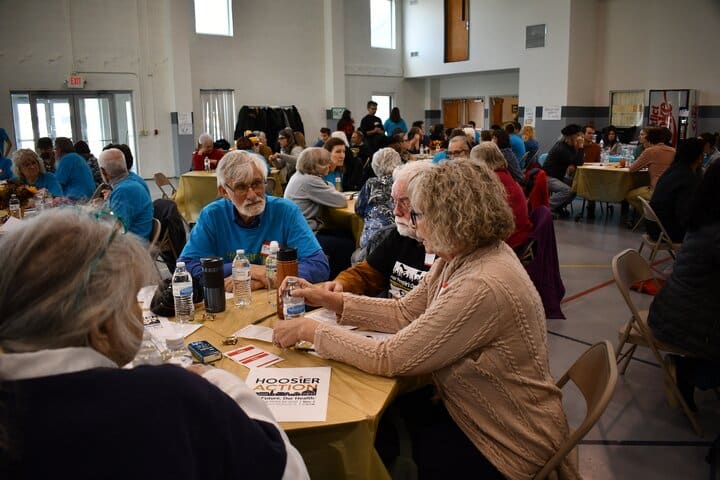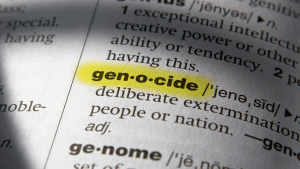On a beautiful fall Saturday, residents in Floyd County, Indiana packed a church to ask city council members about the local budget. One county over, mothers shared concerns about a new data center, rising utility costs, education cuts, and corporate tax giveaways.
Neither meeting was filled with policy experts — just neighbors who wanted to better the places they live. In both rooms, people came to the same realization: no one is coming to save us. It’s up to us to work together, right where we are, to shape our future.
As a local organizer in small towns and rural areas like these, I’ve heard countless people describe politics as a distant, partisan spectacle. The national media thrives on a red-vs.-blue drama that enriches consultants while our communities see little change.
Each year, the gap between what people experience locally and what they see on television widens. Meanwhile, we face overlapping crises — polarization, misinformation, automation, extreme weather, and isolation. Our collective survival depends on our ability to collaborate locally.
Aristotle believed humans thrive in communities where they can deliberate and create purpose together. But now our politics are too vast, our systems too distant. Many people feel powerless over housing, health care, or the economy, subject only to decisions made by faraway powers.
Place-based organizing is how we restore politics to a human scale: neighbors coming together to defend what they love, demand accountability, and build power where they live. Whether we’re facing flooding, AI disruption, or authoritarianism, it will be the people around us who get us through.
At Hoosier Action, my organization, our work centers on empowering ordinary people in Southern Indiana to defend their futures. As member Cisa Kubley put it, “Every member of our community matters — and every one of us should be included in making the decisions that affect us all.”
That means Clark County moms fighting massive corporate subsidies for a Meta data center, families organizing to keep rural hospitals open, and residents scrutinizing city budgets to hold private developers accountable in the town of New Albany.
These local struggles are part of a larger movement of people rediscovering their agency and responsibility to one another.
READ: Forty Organizations Offer a Plan to Revitalize Rural America
As another member, Michael Bishop, said after a contentious city meeting, “Our whole goal here is to get people to be more accountable in local government.” Then he urged his neighbors to show up at the next meeting to speak their minds.
That’s place-based organizing in action — slow, relational, and deeply human.
This work doesn’t make for viral content or political spectacle. It’s messy and often invisible, built on conversations, trust, and persistence. It teaches people how to live and act together. When someone in a small town realizes their voice matters — and sees their neighbors standing beside them — it rekindles faith in democracy itself.
It may seem counterintuitive to focus locally in a time of global crisis, but it’s precisely what this moment demands. The future will not be saved by algorithms or distant leaders; it will be shaped by ordinary people in ordinary places choosing to work together. When people struggle together for their home, they discover a sense of agency no national movement can replicate.
True power comes from neighbors — not consultants — who understand local issues and are willing to fight for their communities. Reinvesting in grassroots leadership is not just an act of civic renewal; it’s a survival strategy.
Our democracy is fragile — frayed by polarization, disinformation, and corporate control. When people feel abandoned where they live, they’re more vulnerable to hopelessness, apathy, or the false promises of extremism. But when they come together to solve problems in their own communities, they rebuild the civic muscle democracy depends on.
True power comes from neighbors — not consultants — who understand local issues and are willing to fight for their communities. Reinvesting in grassroots leadership is not just an act of civic renewal; it’s a survival strategy.
Democracy will not be rebuilt in Washington. It will be rebuilt in the church basements, living rooms, and city halls in towns like yours and mine — by people who realize that no one is coming to save them and our neighbors are indeed the answer.
This op-ed was distributed by OtherWords.org.






